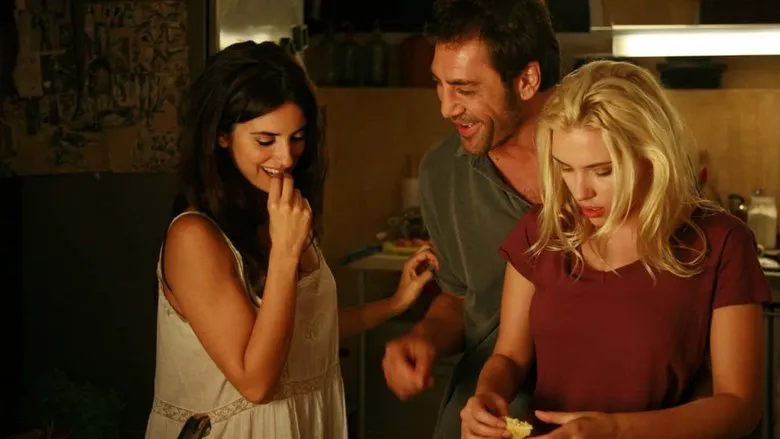Woody Allen’s Enduring Brilliance: A Review of “Vicky Cristina Barcelona”
Woody Allen, a name synonymous with witty dialogue and intricate character studies, once again proves his cinematic prowess with “Vicky Cristina Barcelona.” This film, set against the sun-drenched and culturally rich backdrop of Barcelona, is a captivating exploration of love, life, and the ever-elusive pursuit of happiness. It’s a story woven with the delicate threads of friendship, desire, and the constant human struggle to find meaning.
The Dichotomy of Friendship
At the heart of the narrative are Vicky and Cristina, two American friends who embark on a summer adventure in Barcelona. Vicky, played with poised intellectualism, represents the pragmatic and engaged individual. She is engaged and seemingly content with her life’s trajectory. In stark contrast stands Cristina, a free spirit perpetually searching for something “more.” This “more” manifests as a desire for profound romantic and creative fulfillment. Their contrasting personalities become a source of both comedic friction and insightful commentary as they navigate the myriad temptations and cultural experiences that Barcelona so lavishly offers . The film cleverly uses their personalities to explore different perspectives on love and commitment.
An Unexpected Proposition and its Ripple Effects
The narrative takes a sharp, almost comical turn when the two friends encounter Juan Antonio, a charismatic and artistically expressive Spanish painter who exudes a Javier Bardem-esque magnetism. Juan Antonio, without a hint of hesitation, extends an invitation for a weekend getaway to Oviedo. Wine, passion, and even the possibility of a ménage à trois are all dangled as enticements. Vicky, predictably, reacts with initial shock and disapproval at such a bold proposition. However, Cristina, ever the adventurous soul, is immediately intrigued and open to exploring the possibilities, setting the stage for a complex and emotionally charged dynamic.
Allen’s Signature Wit and Wisdom
Even at 74 at the time of the film’s release, Woody Allen’s directorial touch remains remarkably sharp, delivering thought-provoking films with remarkable consistency. “Vicky Cristina Barcelona”, under its guise as a lighthearted and sensual take on a love triangle, actually delivers a profound commentary on the human condition, asking us as viewers to question the conventional notions of relationships. It encourages us to look with a more critical eye at societal beliefs around love as well as happiness within those contexts.
The Paradox of Choice and the Illusion of Control
The film subtly challenges the audience by presenting two very different paths. Vicky’s calculated and seemingly responsible way of living proves no more fulfilling than Cristina’s bohemian lifestyle. The irony lies in how both choices prove to be somewhat superficial. Vicky’s secure relationship begins feeling more like a comfortable and uninspiring routine as opposed to a deep bond. Subsequently, Cristina’s artistic explorations and passionate affairs are coupled with emotional volatility and instability making the viewer question whether either woman has found what they seek.
Deconstructing “Love”: Transaction or Self-Deception?
Allen masterfully uses the framework of a romantic comedy to deliver the sobering realization that “love” is often just used as a comfortable euphemism, either for an agreement meant to create convenience or to self-deceive… The film provides a momentary glimpse of genuine emotional connection against the backdrop of manufactured expressions - Vicky’s profound connection with the Spanish guitar riffs represents pure, unadulterated feeling. This profound moment serves to remind us of Allen’s genius-- he has created a cinematic snapshot into our deep longings, vulnerabilities, and our often misguided attempts at love and fulfillment.